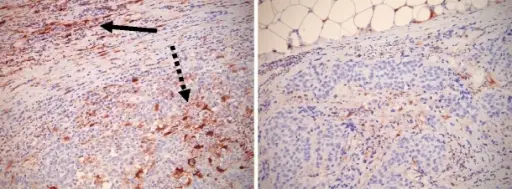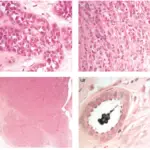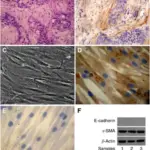Sporadic breast cancer is the cancer which develops from damage to a person’s genes that occurs by chance after they are born.
What is the Pathology of Sporadic Breast Cancer?
The pathology of sporadic breast cancer is:
-Etiology: The cause of sporadic breast cancer is alteration to a person’s genes.
-Genes involved: BRCA1 or BRCA2, MLH1, MSH2, MSH6, and PMS2, PTEN, TP53, STK11, ATM, CDH1, PALB2, and CHEK2.
-Pathogenesis: The sequence of events that lead to sporadic breast cancer is the spontaneous non-inherited genetic alteration that leads to breast malignancy.
-Morphology: The morphology associated with sporadic breast cancer tends to be a palpable breast mass.
-Histology: The histology associated with sporadic breast cancer varies widely, but is characterized by the presence of malignant cells.
How does Sporadic Breast Cancer Present?
Patients with sporadic breast cancer typically are female present at age range of older than 50 years. The symptoms, features, and clinical findings associated with sporadic breast cancer include palpable breast mass or breast pain. A change in the size or shape of the breast may be noted. Nipple discharge, tenderness, retraction (turning inward), skin irritation, dimpling, redness, or scaliness may also be present.
How is Sporadic Breast Cancer Diagnosed?
Sporadic breast cancer is diagnosed through the breast examinations and biopsy evaluation.
How is Sporadic Breast Cancer Treated?
Sporadic breast cancer may be treated by surgical intervention.
What is the Prognosis of Sporadic Breast Cancer?
The prognosis of sporadic breast cancer is fair. The late-onset familial breast cancers need more intensive therapy and a closer follow-up.



